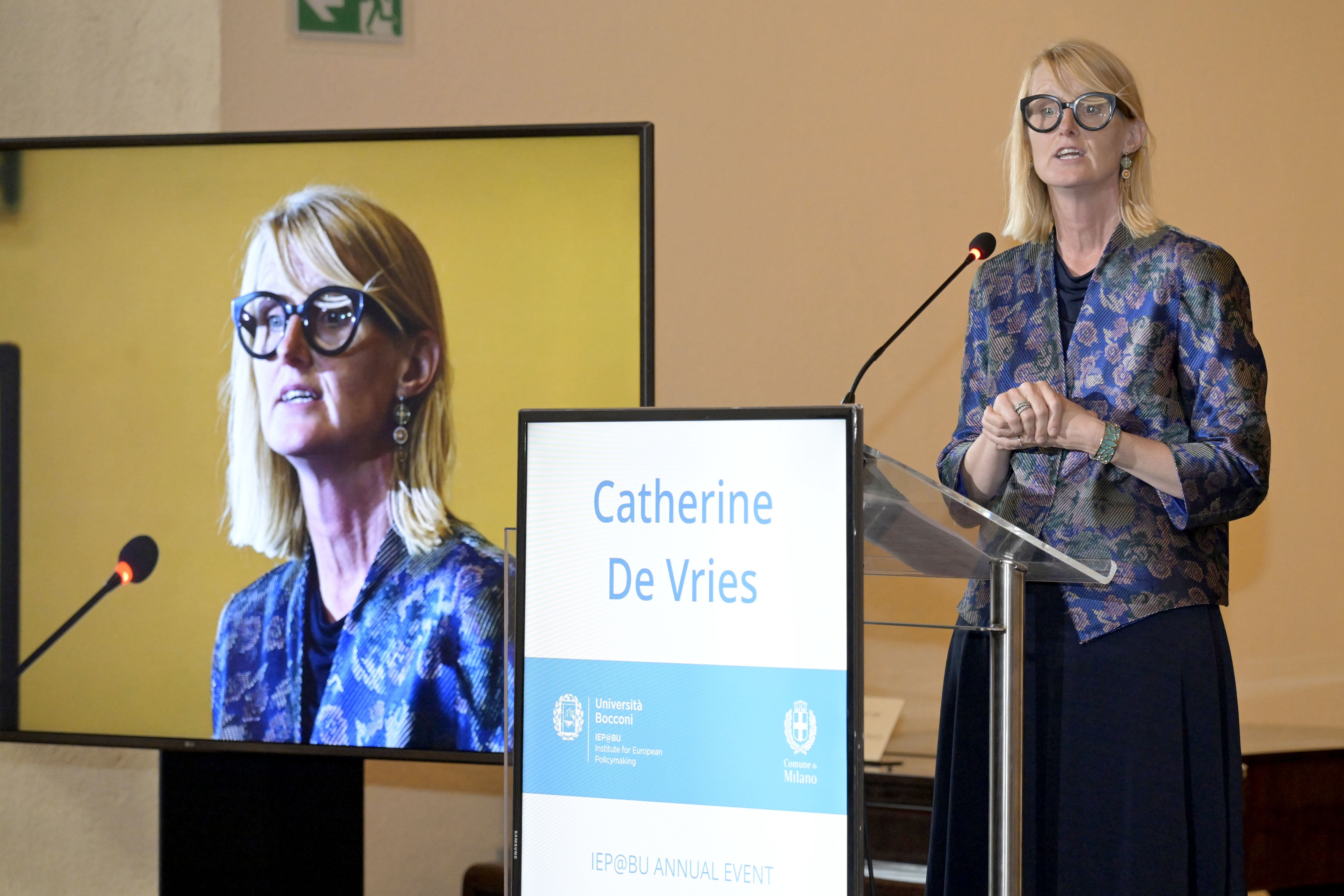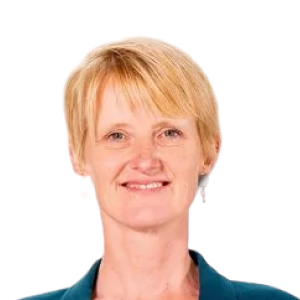The Challenges of the Future Cannot Be Met by Any One Country Alone
Forty years ago, Milan hosted the pivotal 1985 European Council where, for the first time, a vote was called — breaking with tradition and setting Europe on a new course. By Catherine De Vries

Below are the concluding remarks by Catherine De Vries, President of IEP@BU, delivered at the Institute's 2025 annual event, in Milan, 11 June, 2025
Ladies and Gentlemen, Distinguished Guests, Friends and Colleagues,
As we bring this remarkable event to a close, let us take a moment to reflect, not just on the valuable insights we’ve gathered, but also on the powerful sense of continuity and purpose that connects our past to our future.
As we heard already, it’s no accident that we meet in Milan in 2025. Forty years ago, this city hosted the pivotal 1985 European Council where, for the first time, a vote was called — breaking with tradition and setting Europe on a new course.
That bold step led to the Single European Act, laying the groundwork for the single market and deepening the political, social, and institutional ties between European citizens and member states to shape the European Union as we know it today.
Back then, the idea of a unified Europe — open, dynamic, resilient — was tremendously fragile. But it was nurtured by visionaries who understood that Europe’s strength would not come from standing still or retreating behind national borders, but from moving forward together. They knew, as we still do, that the challenges of the future cannot be met by any one country alone.
Today, in a very different Europe, we face our own historic crossroads. The world around us is undergoing profound shifts: geopolitical tensions, digital transformation, climate change, migration, aging populations, lack of economic competitiveness, and threats to the very values upon which the Union was built.
And yet, if the past forty years have taught us anything, it is this: Europe is at its best when it dares to act on behalf of and for its people. When it is courageous enough to reform. When it chooses solidarity over division, cooperation over competition, and hope over fear.
Here in Milan, we have spent not only this afternoon, but also this morning at Bocconi, discussing just that: how to shape the future of Europe. We have done so through the lens of that pivotal moment in 1985, and what it means today. We have debated how to strengthen our institutions, how to deliver on citizens’ expectations, how to strengthen our continent’s security in an increasingly insecure world and how to balance national interests with a common vision.
And above all, we have reaffirmed our commitment to a Union that is not only economically viable but socially just, politically vibrant, and globally relevant.
We leave this event with many ideas, and perhaps even with some disagreements, as is healthy in any democracy, but above all with a renewed sense of purpose. That is the essence of European policymaking: to continuously confront complexity with creativity, to balance ambition with pragmatism, and to never lose sight of the foundational ideals that brought us together in the first place: peace, prosperity, and unity.
To the young people among us — students, early-career researchers, aspiring public servants — your generation will inherit the results of today’s decisions, but you are also already shaping them.
The Europe of tomorrow is not something that will be delivered to you, it is something you are already building. Keep asking the difficult questions. Keep challenging orthodoxies. And above all, keep believing in the possibility of a better Europe.
Let us remember that Milan 1985 was not just a meeting, it was a moment of political courage. It was a signal to the world that Europe would not be passive. That, when necessary, it could defy inertia, renew itself, and take bold steps forward. It is up to us, now, to ensure that the spirit of that moment endures.
In that spirit, I want to express my deepest gratitude to all those who made this event possible.
First, to the Mayor and the Comune di Milano: thank you for your unwavering support and for welcoming us so warmly to this great Milanese landmark.
To the President, the Rector, and the Managing Director of Bocconi University: your commitment to teaching future generations, to academic excellence, and to European cooperation is crucial at this moment.
And finally, to the entire Bocconi team: from the Institute of European Policymaking to every staff member who worked behind the scenes. Thank you for the professionalism, care, and passion that made this event such a success.
The story of Europe continues and today it once again continues from Milan. Thank you very much.
IEP@BU does not express opinions of its own. The opinions expressed in this publication are those of the authors. Any errors or omissions are the responsibility of the authors.
